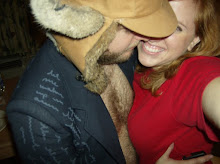After reading the first chapter of Bystanders I'm feeling, well, torn. I appreciate Barnett's provision of definitions, and this opening chapter is certainly challenging.
I am torn because I keep thinking about those in Sonderburg, who had neighborly relationships with the Jews of their community. Over night, Barnett says, some of them changed their attitudes toward the Jews whom they'd had a history of friendly relationships with. It seems that in a community such as theirs, where there was no nearby concentration camps, that as a solid group of people could have protested the mis-treatment of their neighbors. That perhaps it would have made a difference. Then I think of those near Mauthausen and I, so sadly, see myself in them. These people saw the horrors of what went on. They saw people killed. They saw them marched through their village, malnourished, mistreated, shadows of the people they once were, and they did nothing. I keep asking myself. Why didn't they do something? Then I ask, what would I have done? Then I ask, what could have been done? And then I find myself thinking like them. I detest it. I cannot go easy on them simply because I wonder if I would have become a not-so-innocent bystander. I wonder if I would have done something...anything. Would I have looked away as priosoners were brought through town? Would I have looked away from the shootings that took place in my very town?
They were afraid. I know I would have been afraid.
It seems the Nazi party backed away if there was too much protest. What if everyone protested? I wonder if more in Sonderburg would have done more if they'd seen what those in Mauthausen saw? Or perhaps they would have done less out of fear. Those 12 jews left in Sondergurg in 1939 perhaps would not have received food, and letters, and support from their neighbors if those neighbors saw what Mauthausen saw...I don't know. I hope I would have done something.
Monday, January 18, 2010
Subscribe to:
Post Comments (Atom)

No comments:
Post a Comment